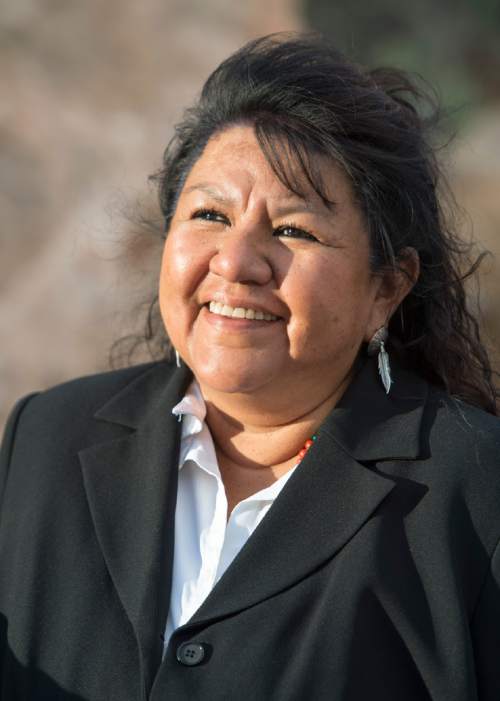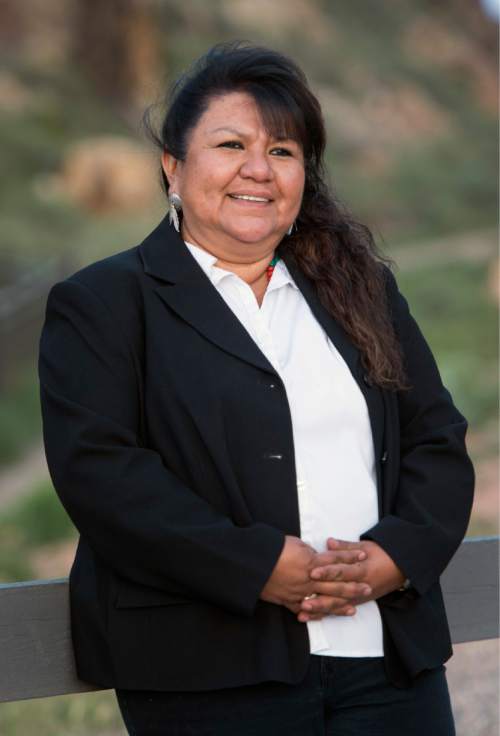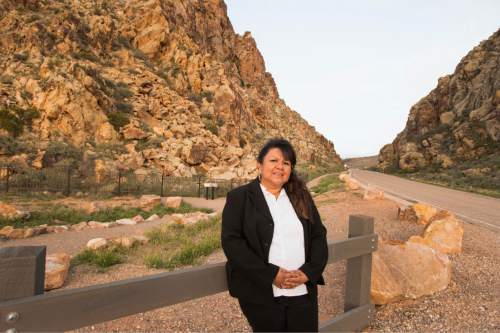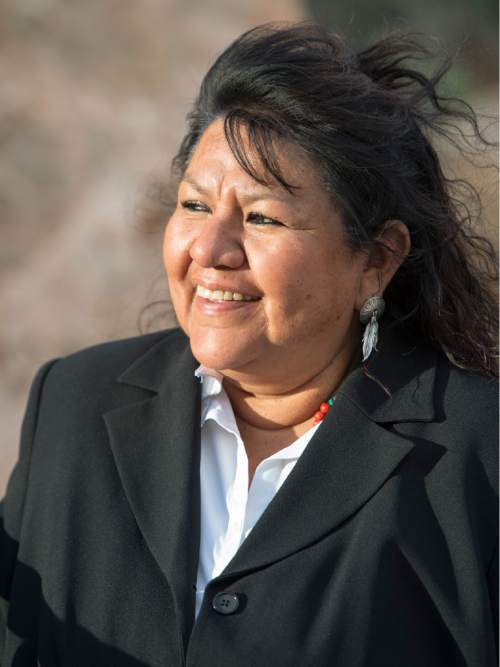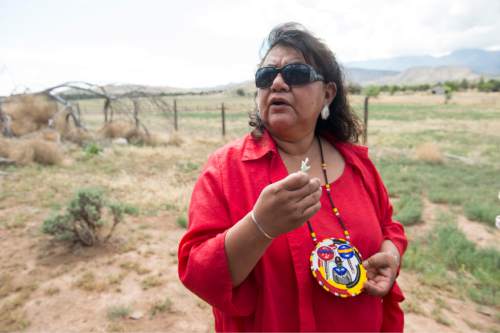This is an archived article that was published on sltrib.com in 2015, and information in the article may be outdated. It is provided only for personal research purposes and may not be reprinted.
Editor's note: This is one in a series of profiles of members of the Paiute Indian Tribe of Utah. Find the full story here.
Through a history of enormous loss, it may be natural that the Paiute cultural traditions that have remained most complete and relevant deal with grief.
Paiute spiritual rituals approach mourning and emotional healing with a specific strategy: Pain is faced directly, openly and as a community.
That wisdom is bedrock to Corrina Bow, the new tribal chairwoman, who was selected last month in a special election following the nationally-controversial ouster of her cousin, Gari Lafferty. After a month of political conflict, unprecedented media exposure and broken relationships, Bow has a word to describe the state of her tribe: "Wounded."
"It's been really hard on everybody," Bow says. "The tribe has been through a lot of pain."
The scale of that pain may not be immediately apparent to outsiders who were drawn to the upheaval because of its connection to the Washington, D.C. football team, whose name is considered by many to be derogatory to American Indians.
Lafferty accepted a trip to watch the NFL team play, received an autographed football and met with the team's Original Americans Foundation after she filled out a questionnaire it sent to her about tribal needs. The foundation gave two vans to the tribe after Lafferty reported transportation was a challenge.
The council voted in April to remove her as chairwoman on ethics charges for accepting the trip and gifts. Lafferty appealed, saying she was being removed because of political differences. National media seized on the connection to the divisive team name, thrusting into the spotlight a tribe that has kept such a low profile that some residents of southern Utah don't recognize the names of the bands.
In a group where nearly everyone is related by blood or by marriage, politics is intensely personal. As members chose loyalties, family connections and lifelong friendships were strained, all while the tribe was under national scrutiny, Bow says. Consternation over the team name soon was eclipsed by deeply hurt feelings.
When Bow's name appeared on the ballot in a special election to fill the chairmanship, she didn't campaign. But she already had an intimate connection with tribal members.
Bow is a funeral singer. It's a role she won't delve into publicly, but other tribal members describe Paiute funerals — known as "cries" or "sings" — as intense, all-night mourning ceremonies involving the entire Paiute community and many hours of music.
Without disclosing details of the ritual, Bow explains that it's part of her duty to give families space to fully express their sorrow during a cry. That's what the time is for, she says: "To cry, to get that out of you."
Bow suspects voters carried memories of those vulnerable moments when they elected her. She does have specific plans for her term: The tribe is trying to develop land it acquired in Springdale, and it's looking at putting in a beach and trail at Ivins Reservoir.
But fundamentally, Bow says, her mandate is to help the tribe confront and recover from its wounds.
"We can't jump over the problem that's there," she says. "The tribe has to come together as one and go through it together."
After a Paiute person dies, tradition commands one last measure: with the passage of time, a second ceremony to support the mourners as they decide to let go of their grief and move on.
"They've got to heal," Bow says. "The tribe has gone through a lot. It's time for us to clear the air. It's time for the tribe to heal."


